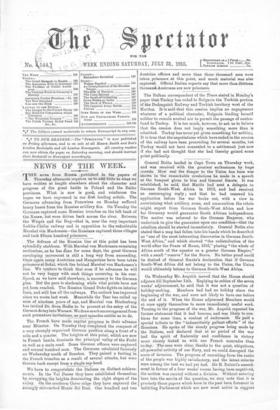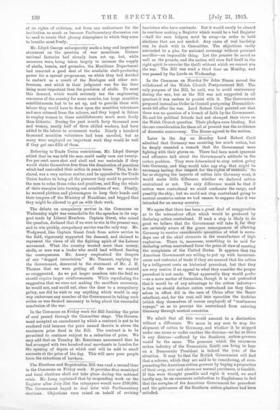On Wednesday Mr. Asquith moved that the House should adjourn
till September 14th. Replying to critics of the seven weeks' adjournment, he said that it was not a question of holiday-making. Members had had no holiday since the beginning of the war, and were not likely to have one before the end of it. When the House adjourned Members would at once apply -themselves to more immediately useful work. Turning to the progress of the war, Mr. Asquith repeated his former statement that it had become, and was likely to con- tinue for some time, a contest of endurance. He paid a special tribute to the "indescribably gallant efforts" of the Russians. He spoke of the steady progress being made by the Italians, and declared that at no period of the war had the spirit of fraternity and confidence in victory more closely linked us with our French comrades than to-day. The seas were clear, thanks to the quiet, ubiquitous, all-powerful activity of our Navy, and we could disregard the scare of invasion. The progress of recruiting from the ranks of the people was highly satisfactory, and the latest returns were among the best we had yet had. Sir H. Dalziel's amend- ment in favour of a four weeks' recess having been negatived, the motion was carried without a division. Without entering here into the merits of the question, we may note that it is precisely those papers which have in the past been foremost in belittling Parliament which are now most active in support
of its rights of criticism, not from any enthusiasm for the institution so much as because Parliamentary discussion can be used to create that gloomy atmosphere in which they seem to breathe most freely.



































